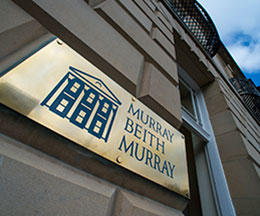 In the lead up to the end of the tax year we continue to look at important areas for consideration when reviewing your tax and financial position. Our latest blog considers how to reclaim tax for previous tax years.
In the lead up to the end of the tax year we continue to look at important areas for consideration when reviewing your tax and financial position. Our latest blog considers how to reclaim tax for previous tax years.
If excess tax has been deducted at source on savings and investment income or Trust income, for example, and you do not require to fill in an annual Self-Assessment Tax Return, you may make a claim for repayment of the excess tax suffered by completing HM Revenue & Customs (HMRC) Form R40.
If you live abroad, you should complete HMRC Form R43 rather than Form R40.
However, there are time limits for making a claim and claims must be made within 4 years of the end of the tax year you are claiming for. For example, a claim for the 2015/2016 tax year must be received by HMRC by 5 April 2020. Every tax year needs a separate claim form.
Time is ticking down, therefore, if you have tax to reclaim for the year to 5 April 2016, you must ensure that this is done before the end of the current tax year on 5 April 2020.
If you normally complete and file a Self-Assessment Tax Return online and have made a mistake which has resulted in excess tax being paid, you can amend your Tax Return online up until 31 January following the end of the tax year in which the overpayment arose. For example, taxpayers may amend their 2018/19 Tax Return up until 31 January 2021.
For tax years before 2018/19, you may make a Claim for Overpayment Relief to HMRC, in writing and again, the same time limits for making a Form R40 claim, as stated above, apply.
Contact our Personal Tax Practitioners, Edinburgh
If this blog has raised any questions, or you would like to discuss your tax position, please get in touch with Murray Beith Murray today using the Enquiry Form or call us now on {{CONTACT_NUMBER}}.
At Murray Beith Murray, we are more than just tax practitioners - we are trusted advisors. We are dedicated to helping our clients solve problems and preserve their wealth. Our highly personal service reflects our culture, which is centred on integrity, trust and expertise, and the guidance we provide has been designed to be an investment, not an expense.